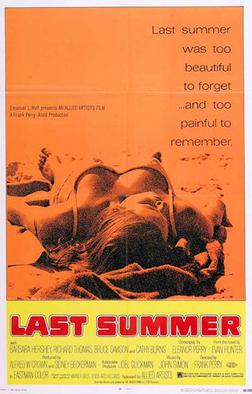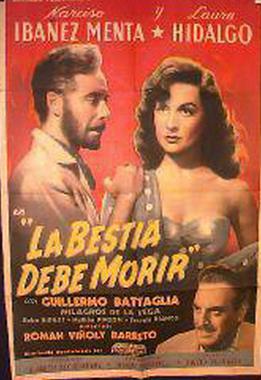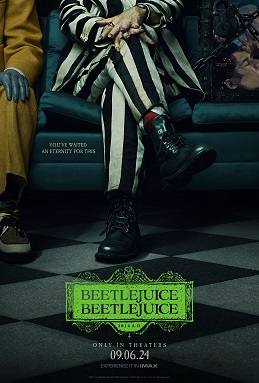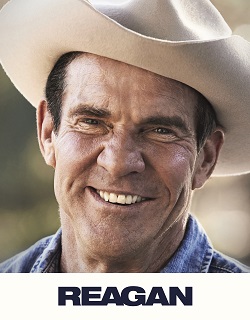THE SUBSTANCE
The body positivity movement has its challenges in The Substance, a wild exploration of the dark side of beauty standards. The Substance will divide viewers in terms of its visuals. I found it neither horrifying nor brilliant, more lukewarm of a film that will thrill some and appall others.
Elisabeth Sparkle (Demi Moore) has been a star for decades and is currently hosting an exercise program. She is still quite attractive, but she is also 50, so her show's producer Harvey (Dennis Quaid) cooly informs her that they need to go younger. That is bad enough, but while distracted when seeing her billboard sign taken down Elisabeth is in a car accident.
At the hospital, she is told that she is physically fine, but she is still emotionally weak. It is here that she receives a flash drive labeled The Substance with a telephone number on it. After some hesitation, Elisabeth calls and is given a sales pitch on a process that will make her younger and hotter.
The process itself is simple: she will inject herself with The Substance, which will create a younger version of herself. Elisabeth will be The Matrix, while her clone will be The Other Self. They are not two different people but are one. The Matrix will be in a state of suspension for seven days while the Other Self lives, then at the end of the seven days they switch places, no exceptions.
Elisabeth goes through the procedure and out of herself emerges Sue (Margaret Qualley). Sue becomes an instant hit with Harvey, promptly creating her own exercise program that is hipper and hotter (the various shots of Qualley's body more for arousal and physical fitness). At first the balance is maintained, but one night Sue cheats when on a one-night stand and extends her time by a day. That causes Elisabeth to age a bit. Soon, as Sue's successful career starts building up, she starts extending her own time at Elisabeth's expense. When Elisabeth does emerge, she delves further into depression as her own looks start collapsing. Things come to a head when Sue is selected to host a New Year's Eve special. With Elisabeth now conscious and a freakish looking woman, she is set to destroy the arrogant Sue. However, things go awry for both of them in horrifying ways, ending in a literal bloodbath and a new creation: Monstro Elisasue, who unleashes hell on a horrified world.
The Substance divided the audience at the screening that I went to. One man, who had been laughing for parts of the film, shouted out that it was awesome and started applauding. His female companion immediately snapped, "Don't clap, that was f***ing disgusting". Another pair, both men, were also split. One man was dead asleep for most of The Substance and the other merely remarked, "I'm glad that's over". I figure that this encapsulates how many will find The Substance. Some will find it all outrageous to hilarious. Others will find it as grotesque as Monstro Elisasue, if not more.
For myself, I found The Substance surprisingly unoriginal in certain ways. The screenplay by director Coralie Fargeat drew elements from The Invisible Man, The Picture of Dorian Gray, Doctor Jekyll and Mister Hyde, The Elephant Man and even from the Love & Monsters episode of Doctor Who. For some time after finishing The Substance, I kept wondering what Monstro Elisasue reminded me of. Eventually it hit me: the Abzorbaloff from Love & Monsters. The final creature looks similar to John Merrick with a bit of the Doctor Who monster. Like with the Invisible Man, you have a chemical that changes your appearance and drives you bonkers. Like with Jekyll and Hyde, you have someone with different personalities who has others unaware it is the same person. Like with Dorian Gray, you have the eternally youthful, beautiful and sensual Sue living out her carefree to decadent lifestyle while the real Elisabeth is locked away, aging and becoming physically corrupt. Even the efforts to kill Sue (the painting) ends disastrously.
Granted, the last comparison is not exact since it is Dorian Gray's moral corruption that appears in his locked-away painting versus Elisabeth's mere physical grotesque decay. However, I think that The Substance covers a lot of familiar themes from past works that its blending of them sticks out.
That does not make The Substance a terrible film by any stretch. I appreciated the logic in the film in how Elisabeth and Sue are One, at least until the very end when Elisabeth is fully conscious and sees Sue disparage Elisabeth on television. Over and over, the mysterious voice behind the seedy Substance office reminded both of them that there is no "she" when one talked about the other. They were not separate entities, but one person who was not obeying the clear rules.
The Substance is very overt about its ideas on how we value the new, hot, young things at the expense of the old. Elisabeth's neighbor Oliver (Gore Abrams) pounds on Elisabeth's door when Sue is creating the chamber in which to hide Elisabeth's body. Once the door opens and he sees that it is the younger and attractive Sue, he immediately melts and becomes besotted. I am hard-pressed to think that Fargeat naming the Quaid character "Harvey" is a coincidence. Men treat Sue far better than they do Elisabeth save for Fred, a high school classmate of Elisabeth who is still quite taken by her.
The comparison between Elisabeth and Sue is clear, if perhaps a bit heavy-handed, when both encounter Troy (Oscar Lessage). Troy was Sue's one-night stand for whom Sue broke the seven-days pattern. When an aged Elisabeth comes upon him on his bike, he rages at her to move out of the way. Here, I can see why Troy yelled at her, as she was blocking his path. However, I sense that The Substance wants to show us how Troy treats women based on looks.
The performances of the three leads were strong. Demi Moore has good moments of quiet rage and regret early on. It is interesting that Moore's best moments are when she is not speaking. Whether it is being withdrawn when she cannot answer Fred's texts due to her distress at her aging appearance or the near meltdown when she keeps altering her looks when preparing for that date, Moore does well. She keeps an appropriately blank expression as Harvey, snide and unaware, tells her they are firing her on her fiftieth birthday.
As a side note, Demi Moore is currently 61.
She is matched by Qualley as Sue. It is difficult to impossible not to note that Qualley is very beautiful and attractive. I hope though that her skill in showing the vanity, fear and ultimately terrifying and terrified nature of Sue's decisions is not lost. Qualley does an excellent job convincing us that Sue is initially Elisabeth only to attempt to be someone else.
As a side note, Margaret Qualley is currently 29.
Dennis Quaid is devouring every moment in his deliberately over-the-top performance as Harvey. He is meant to be outrageous and cartoonishly exaggerated. As such, Quaid was pitch perfect in his role.
As a side note, Dennis Quaid is currently 70.
The Substance makes much use of focusing on Qualley's physical appearance whenever we see her on her Pump It Up exercise show. The various shots are not about exercise but eroticism, but that I think was the point. Sue's show was more overtly erotic than the more bland and standard Sparkle with Elisabeth exercise show. The overall look of both shows reveals the contrast between them: the more traditional Sparkle with Elisabeth versus the almost pornographic Pump It Up with Sue.
The message on the destructive nature of beauty standards and the desire for eternal youth is clear. I can even congratulate the film for touching on how men too sometimes struggle with these issues (it was a man who introduced Elisabeth to the substance, and she meets the older version later on). At times though, I thought the message was overdone. "Pretty girls should always smile," Harvey tells Sue before her New Year's Special, oblivious to how she is physically falling apart. I figure this is a variation of the "smile more" line that women are told as a put-down.
It is surprising to me that The Substance starts with a great montage of Elisabeth's rise and descent on her Hollywood Walk of Fame star but still was exceptionally long. I think The Substance is longer than it should be.
As much as some, I imagine, loved the Monstro Elisasue section in all of its graphic glory, I thought it went on too long. I did not think it was monstrously graphic or shocking. I think it actually veered towards funny and intentionally over-the-top. That does not make me think that it could not have been cut down a bit, both in how it looked and how long it lasted.
The Substance will disgust some, thrill others. I think it is the Monstro Elisasue section that will be the deciding factor. While I was not horrified by it, I also was not impressed by it. I appreciated what it was doing and what it wanted to say, but I think people are exaggerated on their praise. Good, not great, be forewarned that The Substance is gory. Your level of tolerance for The Substance, like beauty itself, is in the eye of the beholder.






































